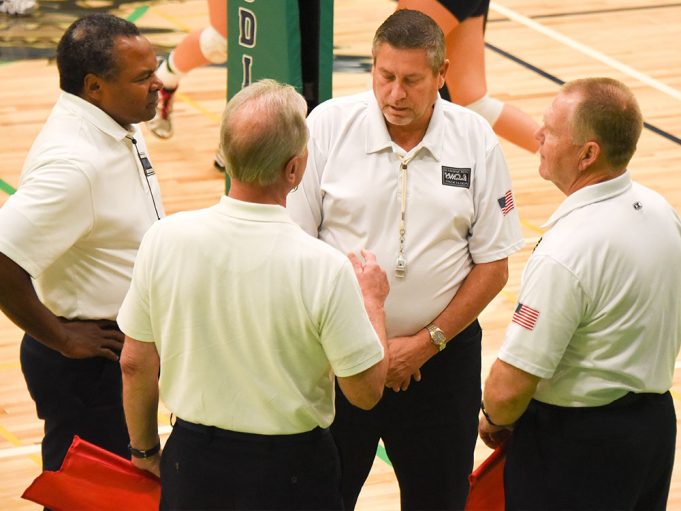People officiate for a variety of reasons. Whether it’s love of the game, exercise, camaraderie or extra money (or any combination of those), too much of even a good thing is no good.
Burnout is a formidable affliction that can cause physical and emotional problems. It turns positive stress (“good stress,” which stimulates motivation) into negative stress, which can easily damage physical and emotional health and possibly ruin a career.
Burnout is a formidable affliction for sports officials
Although there are no universally accepted definitions of burnout, mental health professionals generally agree that burnout is more than simply feeling uninspired and stale in a situation or role. It is also a state of physical, emotional and mental exhaustion that occurs when one’s expectations or aspirations are out of sync with reality. Of all burnout’s red flags, a few of the most common are:
- Feeling unusually lethargic the morning after a game. Do you have to really struggle to pull yourself out of bed — and then discover it’s much later than you thought?
- Letting your officiating affect your daily work and personal life. For example, do you find yourself snapping at your boss or are you irritable with your friends or family?
- Suffering from nagging headaches and other physical maladies. The physical drain of all those games can affect your health and well-being.
Solutions.
The most effective way to curb potential burnout is to catch it early. While that is not as easy as it sounds, most officials agree that it’s always a good idea to:
- Enjoy the sport you are officiating. Anything can become tedious if you are constantly doing it.
- Give yourself a vacation every now and then. When you’re less experienced and still testing your limits, you need to have the strength to take a short break every now and then when you feel the signs of burnout coming on.
- Remember, it’s OK to say, “No.” Less experienced officials might have a more difficult time turning down available assignments because they want to build a solid reputation, but getting burned out and calling one bad game after another is much worse than turning down an occasional game. Most assigners will understand your situation and move on to the next name without holding a grudge. After all, they’d rather have a game worked by an alert, enthusiastic, rested official than one who would really rather be somewhere else.
What's Your Call? Leave a Comment:
Note: This article is archival in nature. Rules, interpretations, mechanics, philosophies and other information may or may not be correct for the current year.
This article is the copyright of ©Referee Enterprises, Inc., and may not be republished in whole or in part online, in print or in any capacity without expressed written permission from Referee. The article is made available for educational use by individuals.















